
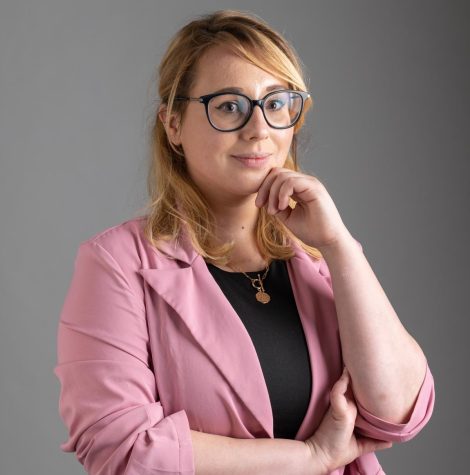
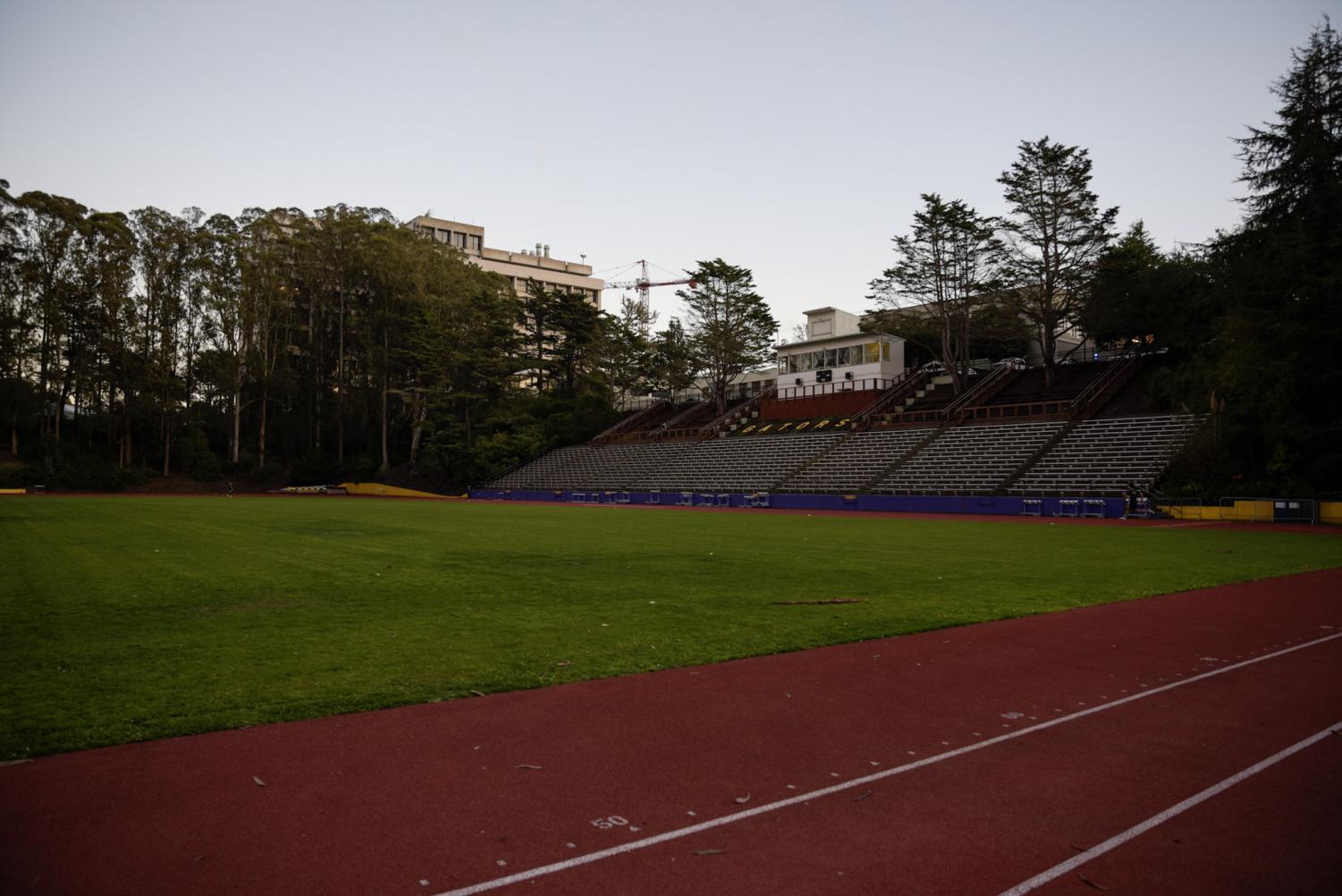

The Gator Gridiron Club, composed of former players and coaches, meets annually to recognize players and raise funds toward scholarships.
Dec 8, 2022
SF State hasn’t had a football team since 1994, but those who live to tell the tales of Gator football continue to honor the team’s past.
While several factors make the concept of a present-day football team unlikely, former members of the program have banded together to keep the program’s memory alive 28 years later.
Don McPhail was the quarterback of the Gators for two seasons from 1964-1965 and won a championship his final season.
He is now on the chair for the Gator Gridiron Club and helped bring it back from dormancy.
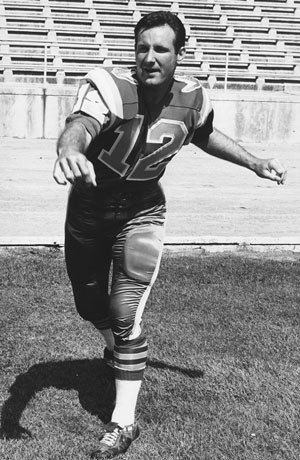
According to McPhail, the club has three missions. One is to recognize five to nine players each year with a Hall of Fame ceremony. The second mission is to create scholarships opportunities for SF State students. And lastly, to keep the former players and coaches and their families together to keep the memory of the program alive.
Allen Abraham is an active member of the Gator Gridiron Club, a group of former Gator’s coaches and players. He played football for the Gators from 1958-1961 and was an assistant coach for the Gators afterward. He thinks back on the decision to end the Gators football program in 1995.
“I think the feeling on campus [was that] we weren’t winning much,” Abraham said. “The Academic Senate said we’re putting all this emphasis on football and we’re not any better. Because the culture around the university and in San Francisco was changing, there wasn’t really a lot of school spirit.”
McPhail also recalls the decision seemingly coming out of nowhere.
“The community around San Francisco, socially and culturally, had changed,” McPhail said. “They were shocked. I don’t think there had been any inkling that [football] would be dropped.”
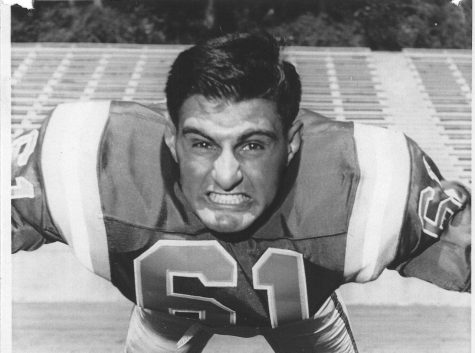
Today, the Gator Gridiron scholarship opportunities have included the Vic Rowen Scholarship Fund worth over $100,000 and the Allen Abraham Scholarship Fund worth up to $1,000 for Kinesiology. As of October 2022, the Gridiron Club has raised a total of $104,000.
The program has featured many legendary names in the game of football. Some of the standout names are a trio who reached Super Bowls as head coaches in the NFL.
Andy Reid started his coaching career with the Gators from 1983-1985. In his 24 seasons as an NFL coach, his teams have had just three seasons with a losing record, with a win percentage currently at 63%. He currently has the fifth most wins for a head coach in NFL history. Reid has led teams to three Super Bowl appearances, including 2019 when his Kansas City Chiefs beat the San Francisco 49ers.
Mike Holmgren began his coaching career in 1981 with the Gators. As an NFL coach, he appeared in three Super Bowls, winning one with the Green Bay Packers. He had a career win percentage of 59% over 17 seasons as a head coach in the NFL and has the 16th most wins as a head coach all-time.
Gil Haskell graduated SF State in 1966 and also went on to have a successful career as a coach in the NFL. He coached in the NFL from 1983-2008 and won a Super Bowl as the wide receivers coach on Holmgren’s championship team.
SF State alumnus and quarterback Bob Toledo won two conference titles as the head coach of UCLA.
However, there are many other lesser known names who created a legacy at SF State.
“These are guys who became high school coaches, championship coaches and then became athletic directors,” McPhail said. “In many cases, they were full-time teachers. They’re very well known in their communities. Some of them have their high school stadiums named after them, because they were there for 25-30 years.”
Joe Verducci and Vic Rowen are both recognized for their accomplishments at SF State. Verducci was the head coach of the Gators from 1950-1960. Under his leadership, the Gators won six Far Western Conference Titles.
Rowen coached the Gators from 1961-1989 and led the Gators to five Far Western Conference titles in the 1960’s. He was the first head coach that Reid and Holmgren coached under and Haskell played for him. Five years after Rowen retired, and so did the program.
Back in 1995, the team was discontinued for a number of reasons. A primary reason was that under a CAL-NOW decree, universities were required to have the percentage of female athletes be within 5% of the university’s population. At the time, females made up 59% of SF State’s student body. That meant that at least 54% of the student-athletes had to be female.
Keeping the football team would mean cutting other men’s sports or adding new women’s sports. Additionally, the team had not had a winning season since 1973 and it was an expensive sport to fund.
There have since been other present day factors that would make bringing back the team difficult. SF State’s Associate Athletic Director Brandon Davis said budget is one of the main issues because in addition to the cost of equipment, there aren’t locker rooms for two teams of 50 to 60 players. Davis also said the stadium creates issues as well.
“When they got rid of football, they redid Cox Stadium,” Davis said. “So it’s really a soccer and track and field facility. No goalposts. We’ve redone the bleachers, but there’s no concessions. There’s no way to control huge crowds.”
Another key issue is that the football team wouldn’t have anyone to play against. Azusa Pacific University was the last Division II football program in California. Their program shut down in 2020 due to costs and lack of opponents to play.
“There aren’t teams to play,” Davis said. “Unfortunately, the trend is that schools are discontinuing football, not adding it. Being expensive and having nobody to play doesn’t make for a successful program.”
SF State student Caitlin Montenegro believes the lack of a football team impacts school spirit on campus, since students traditionally bond at football games for other schools.
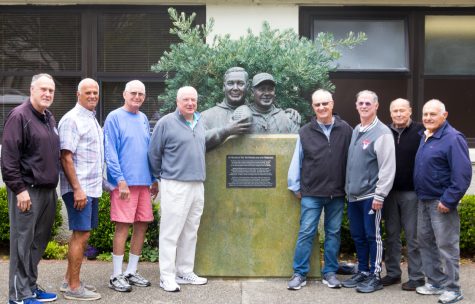
“I feel like it affects a lot of people,” Montenegro said. “Because a lot of people want that typical college experience and having that sense of people coming together. I also feel like it creates more opportunities, for example marching band. A lot of times, people don’t really understand football, but they still go to games just to hang out, meet people and have fun.”
Bringing a football team back is more than a game of inches, it’s in a league of its own. However, the Gator Gridiron Club lives on in an effort to keep the institutional memory alive.


Thaddeus Laffitte • Nov 15, 2024 at 8:19 pm
I am a old Gator Football player. I played the last 2 years. Thaddeus Laffitte. Any one else out there.
Alejandro Arellano • Nov 23, 2024 at 6:14 pm
Hello, I wanted to know if you have any pictures of the football team\’s uniforms (Helmet, Jersey, Pants) because I am trying to recreate the team in a video game and it is so hard to come across images of the team. Thank you.